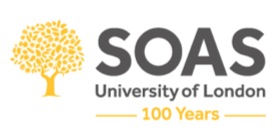Time: 13:00-15:00 (UK Time), Wednesday, 19 October 2022
Presenter: Dr. Jaideep Oberoi, SOAS University of London
Chair: Prof. Victor Murinde, SOAS University of London
Abstract
The management literature identifies transformative and transactional as two dominant leadership styles. We postulate that CEOs’ preferred leadership style may manifest as differences in workplace conditions. We present a conceptual framework to argue that if CEOs seek to engender a more harmonious work environment, they might do so by offering shared benefits to employees that are typically reflected in employment quality measures. To test our predictions, we exploit well documented differences in leadership styles of females and males. Using a rich cross-country dataset consisting of 22,212 firm-year observations between 2002-2017, we present evidence that female led firms provide better working conditions for employees, compared to their male counterparts. We show that conditions when the CEO has greater discretion to implement their leadership style, the transformative impact of female CEOs on employment quality is greater. Specifically, this is true when labor markets are less restrictive, firms operate in more competitive industries, when agency costs are low, and when society is more open to female leadership.
Presenter
Jaideep is a Senior Lecturer in Finance at the School of Finance & Management, SOAS University of London. Jaideep's research interests are in the field of risk management. His publications cover topics in corporate (interest rate) risk management, market microstructure risk estimation, and modelling of long-term risks in pension assets. His research also covers other sources of risk (such as demographic change, weather and governance), as well as asset return modelling in general. Jaideep has received several grants for his research, from organisations such as the Social Sciences and Humanities Research Council of Canada, the Global Risk Institute (National Pension Hub), the Society of Actuaries, and the Institute and Faculty of Actuaries. He has also produced publicly available reports aimed at practitioners for organisations such as the Society of Actuaries, the Institute and Faculty of Actuaries, the Canadian Institute of Actuaries, and the National Pension Hub in Toronto, through their research funding programmes.


